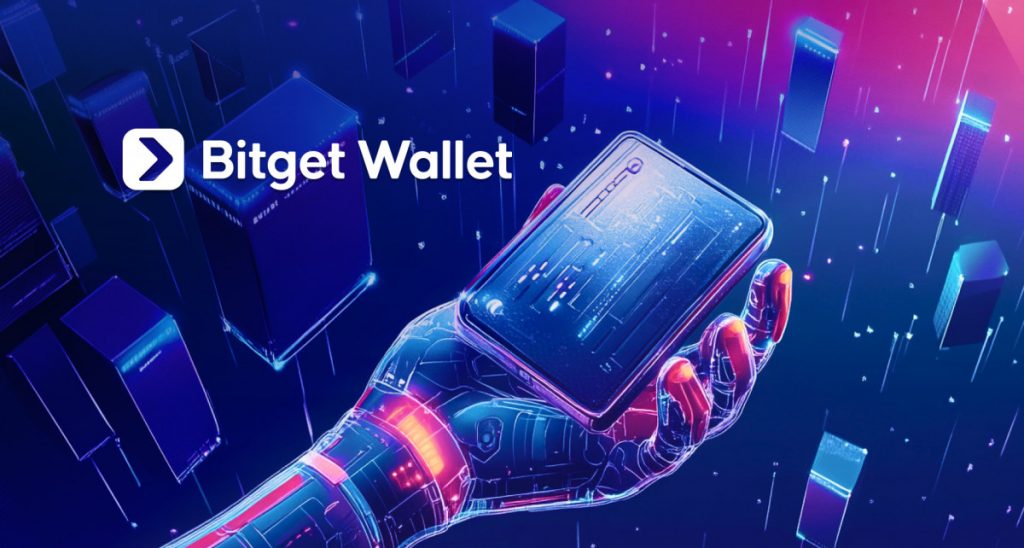Jamie Elkaleh Reveals How Stablecoins Are Solving Everyday Money Problems


In Brief
Jamie Elkaleh, CMO at Bitget Wallet, says crypto is emerging as a vital bridge for the 1.3 billion unbanked and underbanked people left behind by traditional finance.

Jamie Elkaleh, Chief Marketing Officer at Bitget Wallet, argues that crypto is becoming a lifeline for billions excluded from traditional finance.
Imagine this: a street vendor in Accra accepts a mobile payment at sunrise, sends part of the money to her mother in another city by noon, and pays her electricity bill before nightfall, all without a bank account. This isn’t futuristic; it’s the everyday reality for millions using digital wallets, mobile money, and crypto-based tools to navigate economies with limited cash.
Still, the World Bank reports that 1.3 billion adults worldwide are unbanked. Even in developed countries, many are “underbanked,” paying extra fees for cashing checks, wiring money, or handling bills, basic services that fully banked people often overlook. Elkaleh’s key point is straightforward: properly designed crypto solutions can bridge gaps that traditional banks have failed to address.
From Speculation to Survival Tool
For years, the reputation of crypto was centered on trading and speculation. However, Elkaleh observes a quiet but significant change: adoption is rapidly increasing in regions with the weakest financial infrastructure. In these areas, digital assets serve not as luxury investments but as essential financial tools.
Instead of trying to replace traditional banks, crypto wallets and stablecoins offer a parallel system, one that functions around the clock, requires no paperwork, and puts control in the hands of users. For people living paycheck to paycheck, this access isn’t about making profits; it’s about having a reliable means to pay rent or send money home on their own terms.
Why Traditional Banking Left Gaps
Legacy financial systems were built for salaried workers with stable addresses, strong ID documentation, and easy access to branches. For much of the world, this model simply doesn’t fit.
Cross-border remittances are a prime example: fees average 6.35% per transaction, eating into the limited earnings of migrant workers. Rural residents may face hours-long trips to access physical banking services, while language barriers and cumbersome paperwork block many from opening accounts altogether.
Mobile money services in Africa and Southeast Asia have already transformed access. Crypto is now layering on top of these networks, extending their reach even further.
The Crypto Wallet as a Global Bank Account
The real innovation is in crypto-linked cards that enable spending digital assets anywhere. A stablecoin wallet connected to a debit card allows a user in Manila to receive stablecoin payments, use their card at a supermarket, and pay instantly in local currency.
This solution not only adds convenience but also enhances resilience. In countries facing currency volatility or capital controls, families can hold value in a stable, dollar-pegged asset and make local transactions immediately. As Elkaleh notes, products like the Bitget Wallet Card connect global digital finance with everyday life, providing “bank-like” features to anyone with a smartphone.
A Practical Path to Inclusion
Crypto’s expansion into underserved markets is driven more by practicality than hype, prioritizing solutions that meet users’ needs. Wallets should work on low-cost devices and with low-bandwidth internet, while cash-in and cash-out agent networks, similar to those that fueled mobile money’s success in Africa, are crucial for connecting physical and digital currencies.
Consistent, transparent pricing is vital since fluctuating fees can erode trust. Stablecoins require clear safeguards, such as fully transparent reserves and regular audits, to foster confidence. Elkaleh points to Bitget Wallet’s Payfi model as an example, combining stablecoin savings with easy payment options to shift crypto from a speculative asset to a genuine financial resource.
Redefining Financial Access
Financial inclusion is not about flashy innovation; it’s about solving problems that keep billions trapped outside the system. We already have the necessary tools: affordable smartphones, 24/7 settlement, programmable payments, and card networks. The challenge is designing solutions that feel familiar while solving real pain points.
Elkaleh envisions a world where access to money is universal: “A vendor in Nairobi should have the same financial flexibility as a banker in New York,” she argues. With the right mix of regulation, stablecoins, and user-first design, crypto is making that future tangible.
This movement won’t be measured by token prices or tech headlines but by the everyday lives it transforms. In the end, crypto’s greatest achievement might be making financial autonomy a standard, not a privilege.
Disclaimer
In line with the Trust Project guidelines, please note that the information provided on this page is not intended to be and should not be interpreted as legal, tax, investment, financial, or any other form of advice. It is important to only invest what you can afford to lose and to seek independent financial advice if you have any doubts. For further information, we suggest referring to the terms and conditions as well as the help and support pages provided by the issuer or advertiser. MetaversePost is committed to accurate, unbiased reporting, but market conditions are subject to change without notice.
About The Author
Victoria is a writer on a variety of technology topics including Web3.0, AI and cryptocurrencies. Her extensive experience allows her to write insightful articles for the wider audience.
More articles

Victoria is a writer on a variety of technology topics including Web3.0, AI and cryptocurrencies. Her extensive experience allows her to write insightful articles for the wider audience.


















































